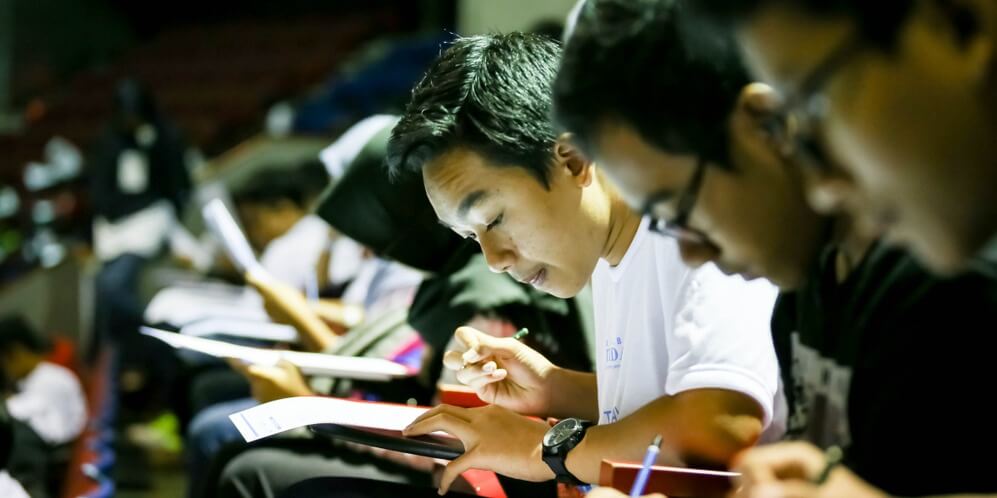Indonesia universities to use standardized government-produced textbooks for Islamic economy
JAKARTA – Indonesia will integrate, over the next three years, Islamic economy pedagogy in textbooks to be used by at least 100 state universities.
The goal is to better link and match, as well as produce, more talent for the needs of the Islamic economy and finance industry, Sutan Emir Hidayat, Sharia Ecosystem Infrastructure Director at the National Committee for Islamic Economy and Finance (KNEKS) told Salaam Gateway.
Three textbooks have already been produced by KNEKS in collaboration with the central bank, Directorate General of Higher Education, Ministry of Education, Culture, Research and Technology (Kemendikbudristek), Sharia Economy Society (MES), and the Indonesian Association of Islamic Economists (IAEI). They will be first used by ten universities.
“An Introduction To Islamic Economy”, “Islamic Development Economy”, and “History of Islamic Economy Thinking” will be taught in ten universities, including mainstream secular universities Universitas Indonesia, Universitas Airlangga, Universitas Padjadjaran, Institut Pertanian Bogor, and Universitas Pendidikan Indonesia. They will also be taken up by Islamic varsities UIN Syarif Hidayatullah Jakarta, UIN Sunan Kalijaga, UIN Ar-Raniry Banda Aceh, Universitas Islam Indonesia and IAI Tazkia.
The remaining seven textbooks are scheduled to be launched within the next two years, when 90 other universities are expected to join the program. They will deal with Islamic finance, halal chains, halal fashion, halal pharma, halal cosmetics and other related topics, said the KNEKS official.
“We want to improve our talent quality and their literacy on Islamic economy so we signed an MoU and collaboration agreement letter with universities, starting with these 10 universities,” said Sutan.
“We agreed that we will launch in total ten textbooks (core curriculum) with three textbooks issued each year, and we’re aiming for 100 universities to join this program so that we can improve our national intended learning outcomes on Islamic economy and finance skills.”
The textbooks will be distributed online during the pandemic.
The idea to produce the textbooks emerged two years ago when KNEKS was putting together the Sharia Economy Masterplan 2019–2024 (MEKSI), Indonesia’s blueprint to grow and improve its Islamic economy.
Indonesia has many Islamic economy academic programs or majors but they are not standardized and there is a limited number of textbooks for universities on the Islamic economy and finance.
KNEKS and other government agencies started working on the textbooks in June last year. Since then, the drafts have gone through several editorial reviews, including by teachers and industry participants.
In addition to textbooks, KNEKS has also launched guide books that the industry and universities can use for their interns that will help with awarding their certification upon completion of internships.
“Going forward, when we complete the series of ten textbooks, every talent or candidate can learn from anywhere,” said Sutan.
“This is in line with the kampus merdeka program from Mendikbudristek that allows students to take courses not just outside their majors but also outside their campus, or in short, student exchange,” he added.
The aim is to facilitate equal access for all students around Indonesia so that those in rural or remote areas get the same access as those in Jakarta and other big cities, said the official.
He believes the textbooks will have a significant impact on future talent.
“First, they will have better understanding on the dynamic needs of the industry through an accurate and structured textbook, since the book not only contains text but also case studies that are closely related to industry. That’s why we’re collaborating with many counterparts, including the central bank so the graduate will match the specific needs of central bank talent, for instance.”
Indonesia has around 2,694 higher education institutions, most of which are private. Around 150 are run by the government.
© SalaamGateway.com 2021 All Rights Reserved
